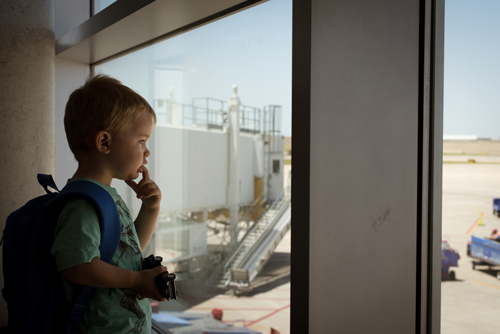Wo ist Gott?
/0 Comments/in Wöchentliche Andacht/by David GuzikUnd er nahm den Mantel des Elia auf, der von diesem herabgefallen war, und schlug damit das Wasser und sprach: Wo ist der HERR, der Gott des Elia? Und als er so das Wasser schlug, teilte es sich nach beiden Seiten, und Elia ging hindurch. (2. Könige 2,14)
Elia war der ältere Prophet, der Mentor Elisas. Als Elia mit seinem Werk fast fertig war und die Erde verlassen sollte, lag es an dem jüngeren Propheten den Dienst seines Mentors weiterzuführen. Elia sagte, dass das passieren würde, wenn Elisa bis zum Schluss da bleiben würde.
Das tat Elisa, und als Elia in den Himmel getragen wurde, rief er laut: „Mein Vater, mein Vater! Der Wagen Israels und seine Reiter!“ (2. Könige 2,12) Das heißt, dass Elisa verstanden hatte, dass die wahre Stärke Israels nicht in seinen Streitwagen und Reitern lag. Die wahre Stärke Israels lag in Gott und in den Propheten und Männern, die Gottes Wort verkündeten und Sein Werk taten.
Als Elia in den Himmel getragen wurde, fiel sein Mantel (ein großer langer Umhang) auf den Boden. Der jüngere Prophet Elisa hob den Mantel des Elia auf und stellte eine Frage: Wo ist der HERR, der Gott des Elia?
Elisa wusste, dass die Macht des prophetischen Dienstes nicht in Mänteln oder feurigen Wagen zu finden war, sondern in der Gegenwart und dem Werk des Lebendigen Gottes. Wenn der HERR, der Gott des Elia auch bei Elisa war, würde er dieselbe Macht und Leitung in seinem Dienst haben.
Es war ein wichtige Frage, die er da stellte. Wenn Gott von Elisa erwartete, dass er den Dienst des Elia weiterführte, dann musste Er für ihn genauso gegenwärtig sein wie für den älteren Propheten. Es war, als hätte Elisa speziell folgendes gefragt:
- Wo ist der Gott, der Elisa treu bleiben ließ, als die ganze Nation sich von Gott abwandte?
- Wo ist der Gott, der Elias Gebet machtvoll erhörte?
- Wo ist der Gott, der auf wunderbare Weise Elia versorgte?
- Wo ist der Gott, der durch Elia Tote auferweckte?
- Wo ist der Gott, der Gebet erhörte, indem Er Feuer vom Himmel schickt?
- Wo ist der Gott, der den entmutigten Propheten ermutigte?
- Wo ist der Gott, der Elia in den Himmel trug?
Derselbe Gott, der all das im Leben von Elia getan hatte, war bereit große Dinge im Leben des Propheten zu tun, der nach Elia kam. Einige dieser großen Dinge würden ähnlich denen sein, die Er durch Elia getan hatte, und einige waren ganz anders.
Derselbe Gott ist bereit und willig auch in deinem Leben arbeiten.
The Power of Music
/2 Comments/in Weekly Devotional/by David GuzikAnd Elisha said, “As the LORD of hosts lives, before whom I stand, surely were it not that I regard the presence of Jehoshaphat king of Judah, I would not look at you, nor see you. But now bring me a musician.” Then it happened, when the musician played, that the hand of the LORD came upon him. (2 Kings 3:14-15)
Three kings came to the prophet Elisha asking for God’s help and guidance. Their armies were stuck in the dry desert, facing a thirsty death before they ever got to battle. Elisha had no respect for the kings of Israel or Edom, but because of the presence of Jehoshaphat king of Judah, he agreed to seek God for their need.
When Elisha sought God for a prophetic word to speak to the three kings he said, now bring me a musician. It was a remarkable thing to say. When Elisha wanted to become more sensitive to the leading and speaking of the Holy Spirit, he asked for the service of a musician.

We know that Elisha was annoyed when the king of Israel first approached him on this matter (2 Kings 3:13). Perhaps this troubled his mind and spirit, and he needed some calm and God-honoring focus that music has the potential to bring. He sought to spiritually build up himself through “psalms and hymns and spiritual songs” (Colossians 3:16).
We don’t know the name of the musician, but when the musician played, the hand of the LORD came upon Elisha and he prophesied, bringing a promise of deliverance to the three kings. As the musician played the instrument, he probably never thought that God would use the notes and melody to bring a great spiritual and military victory. Yet, the musician did what he could do and God used it, and in at least a small way it helped to change history.
Our God is a singing God who loves music (Zephaniah 3:17, Mark 14:26). We are made in God’s image, so we have a natural attraction to music. We can do ourselves much spiritual good by listening to God-honoring music and by worshiping Him in song.
– This speaks of the great spiritual power in music.
– This speaks of the great power of giving our gifts to God.
– This speaks of the great strength of what seem to be small or unexpected things.
– This speaks of the great importance of worshipping God in song.
Make use of this great, wonderful, God-given, and God-blessed spiritual resource.
Der zweifache Anteil
/0 Comments/in Wöchentliche Andacht/by David GuzikUnd es geschah, als sie hinübergegangen waren, da sprach Elia zu Elisa: Erbitte, was ich dir tun soll, ehe ich morgen von dir genommen werde! Und Elisa sprach: Möchte mir doch ein zweifacher Anteil an deinem Geist gegeben werden! (2. Könige 2,9)
An diesem Punkt in 2. Könige kam die Zeit, dass der ältere Prophet Elia in den Himmel genommen werden sollte und den jüngeren Propheten Elisa zurückließ. Bevor er ging, prüfte Elia Elisa auf verschiedene Weise, und dann sagte er etwas Erstaunliches: Erbitte, was ich dir tun soll, ehe ich morgen von dir genommen werde!
Elisa durfte also um alles bitten, was er wollte. Es war wie die Aufforderung, die Gott Salomo machte (1. Könige 3,5) oder die Aufforderung, die Jesus denen macht, die nach Ihm suchen (Matthäus 7,7). Diese tolle Aufforderung bekam Elisa, nachdem er seine Loyalität und Hingabe dadurch demonstriert hatte, dass er seinen Mentor nicht verlassen wollte. Diese hingebungsvolle, nach Gott suchende Einstellung von Elisa wurde belohnt.
Worum bat Elisa? Elisa sagte: Möchte mir doch ein zweifacher Anteil an deinem Geist gegeben werden!Elisa bat um etwas Großes – um den zweifachen Anteil des mächtigen Geistsvon Elia. Elisa hatte gesehen, wie der Geist Gottes durch Elia wirkte, und dasselbe wollte er auch für sich.
Mit dem zweifachen Anteilwar nicht gemeint, dass er zweimal so viel haben wollte wie Elia hatte, sondern dass er um den Anteil bat, der an den erstgeborenen Sohn ging, so wie es in 5. Mose 21,17 steht. Elisa bat um das Recht, als Nachfolger Elias gesehen zu werden, als sein erstgeborener Sohn in Bezug auf seinen Dienst. Doch Elisa war schon als Elias Nachfolger bestimmt (1. Könige 19,19). Er bat um die geistliche Kraft, die er brauchte um diese Berufung zu erfüllen.
Es lohnt sich, darüber nachzudenken, ob das eine gute oder eine schlechte Sache war. Normalerweise erbt eine Person nicht den Dienst einer anderen Person. Die Beziehung von Elia und Elisa – und Gottes offensichtlicher Segen auf ihren Diensten – zeigt, dass Gott zumindest manchmal möchte, dass eine Person den Dienst einer anderen erbt.
Was auch sehr außergewöhnlich ist: Elisa hätte um alles bitten können, doch er bat um dieses. Ihm wurde alles geboten, doch er suchte nicht nach Reichtum, weltlicher Macht oder Status. Er wollte alles, was er gebrauchen konnte, um Gottes Absicht und Ruf für sein Leben zu erfüllen.
Was glaubst du, fehlt in deinem Leben? Um was würdest du bitten, wenn Gott es dir geben würde? Gott darum zu bitten, dass Er dir das gibt, was du brauchst um Seine Absicht für dein Leben zu erfüllen, ist eine tolle Sache. Nimm davon den zweifachen Anteil.
A Perfect Way
/0 Comments/in For Pastors, Preachers, Bible Teachers/by David GuzikGod is my strength and power,
And He makes my way perfect.
(2 Samuel 22:33)
As I write this, I’m waiting in an airport for my next flight. Travel stories are often boring, because we all share similar experiences of delayed or cancelled flights, driving difficulties, or any other number of problems.
Sitting in an unusually quiet airport on the east coast, waiting for a delayed flight that doesn’t board for another two hours, I thought of how reliable God is. I really don’t doubt that I will make it to my destination tonight, even though it will be later than I thought. I’ve traveled enough and made my way through enough of these problems that I have learned that (with rare exception) these things work out. Stressing out only makes the problem worse.

That makes me wonder why I sometime stress out over what I think God is doing (or not doing). Those of us who serve God in the ministry of His Word – those of us who are pastors, preachers, and Bible teachers – we tend to expect a lot from God. That’s good. Often that expectation is an expression of faith. Like children, we have great confidence in our Heavenly Father.
As we expect great things from God, at the same time, let’s have the same confidence that David sang about in 2 Samuel 22. I love this line from that song:
God is my strength and power,
And He makes my way perfect.
Do you believe that God is your strength and power? If you are trying to be your own strength and power, you need to come back to the confidence that God is your strength and power.
Are you confident that God will make your way perfect? Not only will God get you to your destination, He will guard and perfect the way there.
Whatever stresses you face today, with childlike faith pray the truth of 2 Samuel 22:33 back to the LORD.
- Receive His strength and power.
- Rest in the promise, “He makes my way perfect.”
Blessings to You in Jesus’ Name – David Guzik
Click Here to Receive Email from David for Pastors, Preachers, and Bible Teachers
A Great Title
/1 Comment/in Weekly Devotional/by David GuzikBut Jehoshaphat said, “Is there no prophet of the LORD here, that we may inquire of the LORD by him?” So one of the servants of the king of Israel answered and said, “Elisha the son of Shaphat ishere, who poured water on the hands of Elijah.” (2 Kings 3:11)
Three kings gathered in war against the Moabites. As the rulers of Israel, Judah, and Edom crossed the barren desert for a surprise attack upon Moab, they became trapped in the desert with no water for their soldiers or their animals.
Two of three kings had no use for Yahweh, the covenant God of Israel. The Moabite and Israelite kings did not honor the LORD. Yet, Jehoshaphat king of Judah gave some honor to the LORD. With death in the desert near, Jehoshaphat suggested to the other kings that they find a prophet of the LORD. He was wise enough to know that they needed help from the true God, the living God, the LORD.

The answer to Jehoshaphat came from one of the servants of the king of Israel. His answer was something like this: “Yes, there is a prophet of the LORD near here. His name is Elisha the son of Shaphat, and he is the one who poured water on the hands of Elijah.”
I’m fascinated by that phrase: who poured water on the hands of Elijah. The idea is that long before he was recognized as a great and mighty prophet, Elisha served Elijah in simple and humble ways.
I suppose there were times when Elisha literally helped Elijah wash his hands. Perhaps it was time to eat, and Elijah needed to clean his hands. The younger prophet Elisha held the pitcher of water and poured it out over the hands of his mentor. This probably literally happened, but we also understand that this was a phrase used to describe the humble and simple way Elisha served his spiritual father.
In this case, Elisha was not known by the great words he spoke or the mighty deeds God did through him. He was known by his humble service. Zechariah 4:10 asks, “Who has despised the day of small things?” Elisha certainly did not. Before Jesus ever spoke the words, Elisha knew something of the truth that the greatest in God’s kingdom are the servants of all (Mark 9:35).
I have a feeling that when we meet Elisha in heaven, he may introduce himself by saying with a smile, “I’m the one who poured water on the hands of Elijah.” If we will be known for anything, it’s wonderful to be known for our humble, simple service in the name of Jesus.
Where Is God?
/0 Comments/in Weekly Devotional/by David GuzikThen he took the mantle of Elijah that had fallen from him, and struck the water, and said, “Where is the LORD God of Elijah?” And when he also had struck the water, it was divided this way and that; and Elisha crossed over. (2 Kings 2:14)
Elijah was the older prophet, the mentor to Elisha. When Elijah was about to finish his work and leave this earth, the younger prophet asked to continue on the ministry of his mentor. Elijah said that would happen, if Elisha would stick with him until then end.

Elisha did, and when Elijah was carried up to heaven he cried out, “My father, my father, the chariot of Israel and its horsemen!” (2 Kings 2:12) This meant that Elisha understood that the real strength of Israel was not found in its literal chariots and horsemen. The real strength of Israel was found in God, and in the prophets and men who proclaimed God’s word and demonstrated God’s works.
As Elijah was carried to heaven, his mantle (something like a big, long, scarf) fell to the ground. The younger prophet Elisha took the mantle of Elijah and asked a question: Where is the LORD God of Elijah?
Elisha wisely knew that the power in prophetic ministry did not rest in mantles or fiery chariots. It rested in the presence and work of the Living God. If the LORD God of Elijah was also with Elisha, then he would inherit the same power and direction of ministry.
This was a great question to ask. If God expected Elisha to continue on the ministry of Elijah, then He must be present for the junior prophet as He was for the senior prophet. It was as if Elisha could have asked the question more specifically:
Where is the God who kept Elijah faithful when the whole nation turned from God?
Where is the God who mightily answered prayer from Elijah?
Where is the God who provided miraculously for Elijah?
Where is the God who raised the dead through Elijah?
Where is the God who answers prayer by sending fire from heaven?
Where is the God who encouraged the discouraged prophet?
Where is the God who carried Elijah away into heaven?
The same God who did all that in the life of Elijah was ready to do great works in the life of the prophet who came after Elijah. Some of those great works would be similar to what God did through Elijah, and some would be different.
The same God is ready and willing to work in your life.
Wenn Probleme kommen
/0 Comments/in Wöchentliche Andacht/by David GuzikUnd Ahasja fiel in seinem Obergemach in Samaria durch das Gitter und wurde krank. Und er sandte Boten und sprach zu ihnen: Geht hin und befragt Baal-Sebub, den Gott von Ekron, ob ich von dieser Krankheit genesen werde! (2. Könige 1,1-2)
Das Buch 2. Könige beginnt zur Zeit der Regierung Ahasjas, König von Israel. In jenen Tagen waren die 12 Stämme Israels in zwei Königreiche gespalten. Die 10 nördlichen Stämme bildeten das Königreich Israel (mit Samaria als Hauptstadt). Die zwei südlichen Stämme waren das Königreich Juda (mit Jerusalem als Hauptstadt).
Alle Könige des Nordreichs waren böse. So auch Ahasja, der das geistliche Desaster von König Ahab weiterführte. Mit Israel ging es bergab, und Gottes Gericht sollte schon bald auf das Nordreich kommen.
Eines Tages fiel Ahasja durch das Gitter in seinem Obergemach in Samaria. Wahrscheinlich hatte er sich gegen eine hölzerne Fensterabdeckung in seinem Palast gelehnt. Das Gitter brach und er fiel aus dem zweiten Stock. Unfälle passieren halt sowohl Königen als auch Bauern.
Unfälle passieren, aber wie wir auf Tragödien reagieren, zeigt, wo wir unser Vertrauen drauf setzen. König Ahsaja sagte: „Geht hin und befragt Baal-Sebub, den Gott von Ekron, ob ich von dieser Krankheit genesen werde!“Er wandte sich nicht an Gott oder befragte den HERRN, den Gott Israels. Stattdessen wandte er sich an den heidnischen Gott von Ekronnamens Baal-Sebub.
Es ist ein ziemlich zuverlässiges Prinzip: wenn du Probleme hast, wendest du dich an deinen Gott. Wenn du materielle Dinge anbetest, wirst du dich in einer Krise diesen zuwenden. Wenn du Drogen oder Alkohol anbetest, dann wendest du dich diesen zu. Wenn dein Gott Vergnügen und Unterhaltung ist, wirst du versuchen dahin zu laufen, wenn deine Welt auseinanderfällt. Hier bewies Ahasja, dass er wirklich ein Anbeter des heidnischen Gottes Baal-Sebub war, denn er wandte sich in seinen Schwierigkeiten diesem zu.
Was suchte er nach einem wertlosen Gott! Der Name Baal-Sebub bedeutet wörtlich übersetzt: „Der Herr der Fliegen“. Vielleicht glaubten sie, dieser Gott habe die Macht, Fliegen weg oder her zu schicken, doch dieser „Herr der Fliegen“ war zu einem Gott geworden, der sehr häufig angebetet wurde, sogar von Königen.
Man sagt, wenn wir Gott ablehnen, heißt das nicht, dass wir an nichts glauben – sondern dass wir an irgendetwas glauben. König Ahasja war zu stolz, sich an seinen Schöpfer, den liebenden und gnädigen Gott Israels, zu wenden. Aber er war nicht zu stolz vor einem Gott von ekligen Fliegen zu kriechen.
Brüder und Schwestern: in guten und in schlechten Zeiten, sucht den HERRN. Er hat sich uns in Jesus Christus offenbart und ist voller Schönheit und Wahrheit. Er wird zu dem kommen, der nach Ihm sucht (Matthäus 7,7), und er wird sich denen nähern, die sich Ihm nähern (Jakobus 4,8).
Double Portion
/0 Comments/in Weekly Devotional/by David GuzikAnd so it was, when they had crossed over, that Elijah said to Elisha, “Ask! What may I do for you, before I am taken away from you?” Elisha said, “Please let a double portion of your spirit be upon me.” (2 Kings 2:9)
At this point in 2 Kings, the time soon approached when the older prophet Elijah would be taken to heaven and leave the younger prophet Elisha behind. Before he left, Elijah tested Elisha in a few different ways and then asked this amazing question: Ask! What may I do for you, before I am taken away from you?

This was an open invitation for Elisha to ask for whatever he wanted. It was like the invitation that God gave to Solomon (1 Kings 3:5), and the invitation Jesus gave to all who seek Him (Matthew 7:7). This great invitation was given after Elisha had demonstrated his loyalty and commitment by refusing to leave his mentor. That dedicated, seeking-God’s-best attitude of Elisha was rewarded.
What did Elisha ask for? Elisha said, please let a double portion of your spirit be upon me. Elisha asked for a big thing – a double portion of the mighty spirit of Elijah. Elisha saw how greatly the Spirit of God worked through Elijah, and he wanted the same for himself.
The idea of a double portion was not to ask for twice as much as Elijah had, but to ask for the portion that went to the firstborn son, as in Deuteronomy 21:17. Elisha asked for the right to be regarded as the successor of Elijah, as his firstborn son in regard to ministry. Yet Elisha had already been designated as Elijah’s successor (1 Kings 19:19). This was a request for the spiritual power to fulfill the calling he already received.
It is worthwhile to consider if this was generally a good or a bad thing. Normally we don’t think of one person inheriting the ministry of another. The relation between Elijah and Elisha – and God’s apparent blessing on their ministries – shows that at least sometimes God intends one person to inherit the ministry of another.
More than anything, consider this: Elisha could have asked for anything, but he asked for this. When offered everything, he didn’t seek wealth, worldly power, or status. He wanted all he might need to fulfill God’s purpose and call on his life.
What do you think is missing in your life? What would you ask God for if He offered you anything? Asking God for all you need to fulfill His highest purpose for your life is a great thing to ask for. Get a double portion of that.








